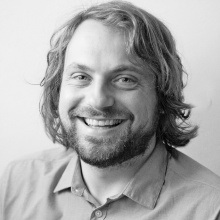Auf Einladung von Prof. Daniel McFarland (Stanford University) hat Raphael Heiberger ein begehrtes Alexander-von-Humboldt Fellowship for Experienced Researchers erhalten. Die Stiftung ermöglicht es ihm zwei längere Forschungsaufenthalte zu "Putting innovation in context. What drives the science-technology frontier?" in Stanford abzuhalten.
Das Projekt versucht die Entstehung technologischer Innovationen mit Hilfe von Big Data und Large Language Models zu erklären. Eine kurze (englischsprachige) Zusammenfassung findet sich hier:
Putting innovation in context.
What drives the science-technology frontier?
The creation of new technologies is vital for modern societies. While scholars have examined many facets of technological progress, prior work on innovation predominantly relies on patents as data source. The proposed project aims to extend the existing perspective significantly by asking how does scientific knowledge foster technological innovation?
This is a seemingly simple but important question that has not yet been answered in many respects. One promising way to explore the link between scientific advances and technological innovation is to utilize cites from technology patents to scientific papers. However, empirical evidence on the science-technology nexus is scarce, because it poses a challenging exercise in matching massive data on publications and patents. Building off links between millions of documents by employing machine learning and natural language processing will allow us to pursue a number of questions that were previously difficult to attempt. In particular, we examine two important mechanisms of technological breakthroughs: (i) the configuration of knowledge components assesses how knowledge is (re)combined in patents and disentangles whether patents are relying on specialized knowledge or touching on diverse knowledge stocks; (ii) the organizational context of patents reveals companies’ path dependencies (prior experience vs. new paths) and, hence, how firm-specific routines shape knowledge creation.
In sum, this project will extend the prevalent perspective on innovation, which mostly rests on patent analyses, by extracting scientific knowledge components. Utilizing various datasets and state-of-the-art methods, we will provide new views on how science fosters technological breakthroughs. Revealing such mechanisms will inform researchers, policymakers, and, not the least, public opinion about the practical impact of scientific research – a task of great importance in times of decreasing trust in established institutions.


